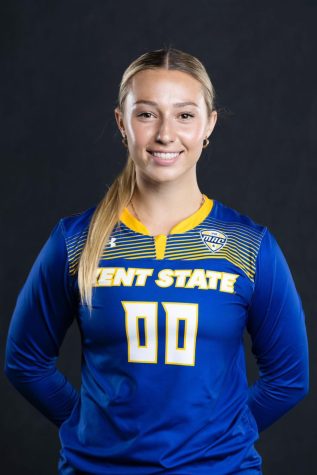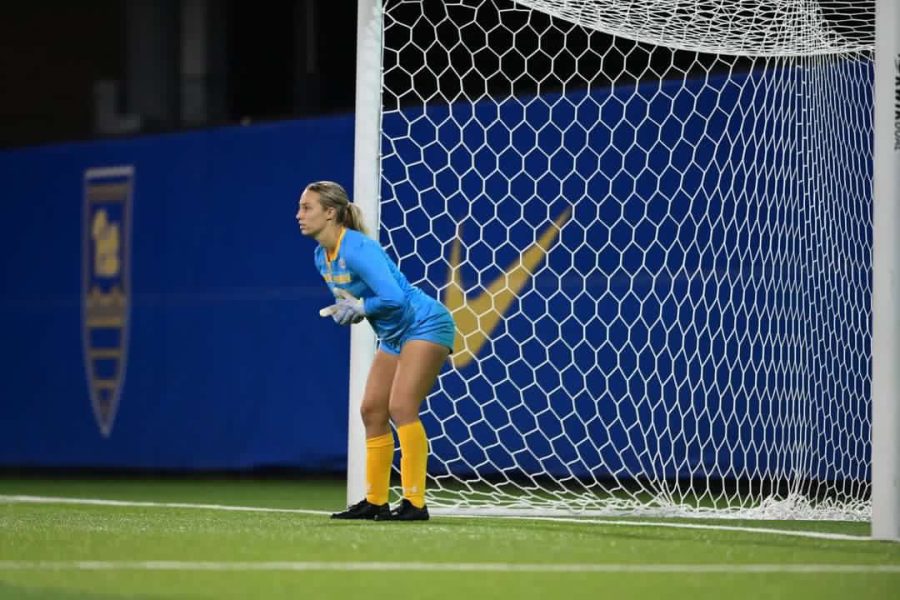Playing sports like a girl: National Girls and Women in Sports Day calls for more recognition of female athletes
Kent State sophomore soccer player Heidi Marshall guards the goal for Kent State University. She says playing soccer has helped her build resilience.
February 1, 2023
For the U.S. women’s national soccer team, it wasn’t the four world series wins that put female athletes on the same playing field as their male counterparts.
It was being granted equal pay to the men’s national team after a six-year long lawsuit alleging gender discrimination. The talent and accolades were always there; the recognition was not.
National Girls and Women in Sports Day is an annual observance in the first week of February honoring the achievements made by female athletes and their continued fight for gender equality.
The observance seeks to bring awareness to gender discrimination and encourage sports participation in young girls and women.
Ravenna youth soccer coach Melissa Morris usually has one to two girls on a single team with the rest being boys. She said her female players seem to have a natural drive to improve.
“Our female athletes are almost always more eager to learn and master their skills,” she said. “So I don’t know if it’s just naturally ingrained in them to try harder or do better at it just because there’s fewer of them.”
Morris also believes that the skills learned on the field can better prepare young girls for the world.
“You learn hard work and you learn that not everything is served to us on a platter equally,” she said. “Push to the higher set bar. That’s what I teach my girls.”
Female players at the collegiate level echo this same message.
Kent State sophomore soccer player Heidi Marshall attributes her personal growth to the sport and her teammates.

“I mentally can deal with a lot of things that I don’t think I’d be able to deal with if I didn’t play a sport because you face so many challenges,” Marshall said. “But most of the time you surround yourself with girls that are bringing you up, they want the same goals, so it’s a very good environment to be in.”
While Marshall describes her experience playing soccer as mostly positive, she said she thinks there is a need for more representation of female athletes.
“Female athletes are not as recognized as they should be. I will say that until something changes,” Marshall said.
Concerns include the lack of community support for women’s games, pay disparities and the prioritization of men’s teams.
“Getting more coverage, getting us out there,” Marshall said. “We’re all playing sports so we should be treated the same.”
Morris has her own theories as to why women’s sports are still not seen on the same caliber as men’s.
“It goes back to that I think people think men do better, they’re stronger, they’re faster and so they get the spotlight a little more,” Morris said.
While female athletes have made great strides, there is still a long way to go.
Both Marshall and Morris said there needs to be a change in the current state of women’s sports so future athletes are treated equally.
“I hope my daughter has the opportunity to see other females that are athletic like her,” Morris said.
Faith Fistler is a reporter. Contact her at [email protected].

























